Queen’s Classroom: Series review
by HeadsNo2
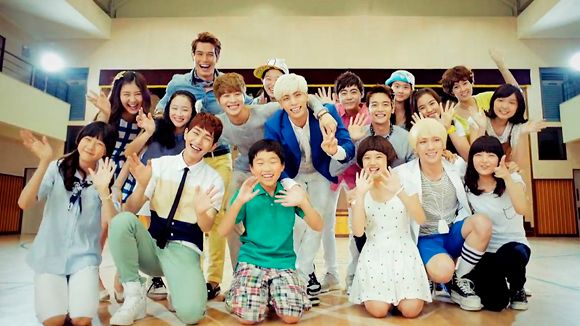
Queen’s Classroom isn’t the sort of drama we’re used to seeing on primetime television, which is perhaps why it flew under the radar when it premiered on MBC earlier this summer. Even though it pulled in low but decent numbers (managing to at least beat out Sword and Flower when the two were in direct competition), the lack of buzz surrounding this show is understandable—with no central romance and a cast comprised mostly of child actors, becoming a hit just wasn’t in the cards. And that’s okay, because what matters most after a drama has come and gone is whether it will stand the test of time, and I have no doubt that Queen’s Classroom will.
SONG OF THE DAY
Queen’s Classroom OST – SHINee “Green Rain” [ Download ]
Audio clip: Adobe Flash Player (version 9 or above) is required to play this audio clip. Download the latest version here. You also need to have JavaScript enabled in your browser.
I’m coming into this review late because I came into this show weeks after it finished airing, and through pitiful circumstances—I plug currently airing dramas into a randomizer app and let it choose which pilots I should watch, both in an effort to broaden my horizons and because it’s frighteningly easy to allow robot overlords to make decisions for me.
So while I only watched the first episode of Queen’s Classroom because of chance, the fact that a show I was initially disinterested in became one of my favorite shows of the year serves as a sobering reminder that hype, numbers, and tons of big name stars aren’t what makes a show memorable or even great (though they’re very nice to have)—it’s whether that story speaks to you, whether you connect with the characters enough to celebrate their victories and mourn their sorrows, and whether the show leaves you inspired and maybe even a little awed after the final credits have rolled.
However unexpected, Queen’s Classroom was that show for me, so while I’d love to avoid all spoilers in this review, I also want to be able to talk about the show, so some spoilers will be unavoidable. It shouldn’t be too overwhelming even for those who’d still like to watch, but ye hath been warned.
The central premise is simple: A hard-nosed teacher takes over an underachieving class of sixth graders using unorthodox methods that run the gamut from emotionally manipulative to just plain cruel and unusual. Students who rebel against her are punished, students who stand up for those unfairly punished are also punished, and those who give in receive good marks but find themselves alienated from their other classmates.
School-based dramas can pick and choose which issues they’d like to focus on, like interpersonal relationships between classmates, commentary on Korea’s rigid educational system, issues like bullying and drug abuse, etc. While Queen’s Classroom is undoubtedly about school life, its message spans further to delve not only into the human condition, but to also explore how the lessons we truly learn are the ones we can’t necessarily be taught.
It’s like the idiom about leading a horse to water, except with a teacher who’s not content to simply tell her students what they should do, and is instead willing to let them suffer, sometimes immeasurably, so that they can come to their own conclusions and grow from their experiences. The fact that she does this to elementary school students—children—makes one severely question her tactics.
But in the world of this drama and the larger world of education, kids in sixth grade aren’t allowed to just be kids. They’re expected to make high grades to get into the best colleges so that they can get the best jobs so that they can be the richest and most successful. Happiness? Unnecessary. From Episode 1, we see that these kids are blocked in on all sides, with society, their parents, classmates, and their school pressuring them to be sure of what they want to do for the rest of their lives (already!) and work toward it. Today is but a small sacrifice we make for tomorrow.
THE TEACHER
At the core of the story is Teacher MA YEO-JIN (Go Hyun-jung), whom the students refer to as “The Witch.” She’s strict with everything from her own routines to the way she dresses, since she’s always covered head to toe in a black skirt suit and simple black heels. She never smiles genuinely, is rigidly polite to her colleagues, and is only conversational when speaking with her students’ parents.
Her teaching philosophy in the beginning is one of abject discrimination—instead of considering all the students equal, she shows favoritism to the smart students and scorn to the underachieving ones, going so far as to make them perform the class’ physically laborious chores so that the smarter students can have more time to study. The benefits for the smarter students include but are not limited to: no chores, the ability to pick their seats, and being first in line for lunch.
This system of discrimination is Teacher Ma’s way of preparing her students for the real world, one which rewards winners and unfairly discriminates against losers. That’s the society we all live in, and she lays it out for them as such: “No matter how much you complain, the world is not going to change.” Conform or die.
Mystery shrouds Teacher Ma and her background from the beginning, and as a character she remains utterly fascinating until the finale, helped immensely by Go Hyun-jung’s masterful performance. She’s a cipher, and one that doesn’t even hint at emotions brewing beneath the surface most times—her poker face is just too good for that. Even so, I never once felt frustrated by being unable to read her, since the audience follows the point of view of the children. We only know as much as they do, and are left to piece together the rest of the clues on our own.
It’s rewarding and satisfying then that the show maintains that air of mystery around her until the end without making us feel cheated. A clear-cut and detailed explanation of her psyche would do her character an injustice, because her intrigue is part of her charm. Instead we learn about her bit by bit, like how she was imprisoned for hitting a student (though all is not what it seems), and that she wears such concealing clothing in order to cover up huge scars.
While not explicitly said, the show seems to hint that her scars were caused when her only son died. I assumed they might have been burn scars, but it’s interesting how that one fact became the basis for my understanding of Teacher Ma, because we never see a flashback or even a picture. But just to know that she was once a mother and that she moved on to teach children tells us that she does, in fact, has a great love for children beneath her icy exterior.
And as the story progresses, we learn that she loves children more than anything, and that the same students she derided and blackmailed with the files she kept on them (yes, full-fledged, blackmail-ready files of all their activities) are students that she loves with her whole heart, in her own way. Of course, it’s not in a way she shows outwardly as much as in her restraint and her unrelenting rein on her own emotions that we get a sense for how she really feels.
One of the things I loved about this show (aside from everything) was that it felt so complete and relatively free from the obvious signs of live shoot, like rushed cuts or weird story turns aimed to either please the audience or piss them off. This may have to do with the fact that most of the cast was underage and couldn’t work the same insane hours as most adults do in the drama industry (officially, kids are exempt from all-night shooting and are limited to forty hours of work a week). Or, it could just be that this was simply a quiet, understated show that knew the story it wanted to tell from the beginning and told it. Period.
I bring that up especially in relation to Teacher Ma and how she retained her character integrity throughout the entire run. She began as a very unconventional drama heroine and remained that way without undergoing a sudden reboot (ala Eun-ki 3.0 in Nice Guy), or a gradual transformation into a more openly caring person that we could all like without any reservations. Translation: Boring.
Some of the novelty factor might owe itself to Jyoou no Kyoushitsu, the original Japanese drama this show is based on, and despite having not seen the original show it’s nice to see an adaptation that isn’t terrible. But, the same quality I liked about Teacher Ma can also be a point against the show, in that as a protagonist she didn’t really seem to have an arc, nor did she undergo a transformation. Outwardly she remained the same while the students did the growing.
And while that may be true, I actually liked how Teacher Ma stayed true to herself even in the show’s final moments. I didn’t feel deprived of an arc, and have nothing but praises to sing for Go Hyun-jung’s delicate portrayal of Teacher Ma during the more emotional moments of the show—without her needing to say it or show it, we knew that she was deeply affected by her students. How is harder to explain, but the point is that her emotional payoffs—however small and hard to spot—were understatedly effective and genuine.
THE STUDENTS
Child actors—they’re everywhere! We see them in almost every drama and recognize the usual suspects’ faces and names by now, with dramas like The Moon That Embraces the Sun leaving audiences wanting more meaty story lines and screen time for such capable young actors. Suffice to say there’s always consistent work for child actors in a drama industry which loves to spend episodes upon episodes on childhood backstories.
And for a show that’s centered around its child actors, Queen’s Classroom did a fantastic job in the casting department by cherry-picking the best and brightest young actors to take on the very complicated and demanding roles required of them. Because so much of this show is reliant upon understated character interactions rather than grander plot movements, any failure in the acting department could’ve easily tanked this show. But since that didn’t happen, Queen’s Classroom also gets my vote for being one of the most strongly-acted dramas of the year. If you believe nothing else I’ve said about this show so far, believe me when I say that the acting in this drama is superb.
Though we get to know almost every student individually in Teacher Ma’s class, the story specifically revolves around four very different students who start out as near-strangers before they eventually bond and form lasting friendships with each other.
We start off by meeting the cheerful SHIM HANA (Kim Hyang-gi), an average student who values friendship and loyalty above all else, including her school performance. She’s well-liked but not popular, friendly, and comes from a home with a doting mother, an older sister, and an unconcerned (and possibly cheating) father.
She and Teacher Ma are at direct odds for most of the series, since Teacher Ma’s philosophies place no value in friendship or kindness, or how much heart you have. While Hana always means well, she feels she must defeat Teacher Ma in order to show her that she and the other students are not her puppets—so she’s the one that instigates the class, or her individual group, into failed rebellion after failed rebellion.
Hana makes an unlikely friend and ally in KIM SEO-HYUN (Kim Sae-ron) when she stands up for Hana when Teacher Ma refuses to let her go to the restroom. Even when faced with the threat of punishment if she were to side with Hana, Seo-hyun helps Hana outside, where it turns out she wasn’t lying about needing to go since she ends up going in the hallway.
Therefore, Seo-hyun sees Hana at one of her most pitiful moments and helps her regain her footing, which instantly lets us know that while Seo-hyun is the smartest student in the class, she still doesn’t quite fit in. But unlike Hana, Seo-hyun doesn’t care about fitting in, since she’s clearly used to marching to the beat of her own drum.
Normally aloof and uninterested, Seo-hyun’s cold exterior starts to melt the more she’s around Hana and the rest of the Underdog Group. Like the other three students (two of whom haven’t been introduced here yet), she has an interesting arc and her own emotional baggage to deal with.
I like that we see bits of Seo-hyun’s personality and her desire for individuality when faced with Teacher Ma’s message of conformity and obedience. During one of Hana’s failed class coups (she tries to get all her classmates to boycott a school dance recital, but everyone ends up obeying Teacher Ma in the end), Seo-hyun doesn’t go with the rest of her classmates when they all leave Hana, simply explaining that she didn’t want to do what Teacher Ma told them to.
It’s sweet because you know Seo-hyun stuck around because she feels a sense of loyalty to Hana, who serves as a kind of beacon for the other underdogs to gather around. One of Hana’s most loyal friends turns out to be class clown OH DONG-GU (Chun Bo-geun).
Another interesting facet of this show is how we get to know each child and their parents in everyday slice-of-life situations, which informs who they are and how they behave at school. Dong-gu could be classified as a troublemaker, but he’s a good-hearted kid who mostly just doesn’t care about good grades or success. An orphan abandoned by his mother, Dong-gu has been raised by a kindly and effeminate bar-owning grandpa he calls “Madame Oh.” (The “madame” part is not a typo.) We’ll come back to this in a bit.
Dong-gu’s big breakthrough comes early in the series, when we see him being bullied relentlessly by some older kids from another school. When he asks Teacher Ma for advice on how to deal with bullies (unaware that she’s watched him be beaten), she tells him that if he doesn’t have the strength to fight back, which he doesn’t, he should just surrender to them. But in surrendering he’d be risking his life in the hopes that his courage will win over the bullies’ cowardice.
So Dong-gu does as she says, and faces the bullies by giving in to all the beatings they can dish out. He endures the pain until the bullies stop, afraid that one more kick will kill Dong-gu, and this scares them enough to leave him alone for good. Dong-gu is therefore victorious, even as he’s bloody and bruised and half-dead from the attempt.
What’s really striking about this scene and what it says about Teacher Ma’s character is that she watched it happen. She knew Dong-gu would get beaten and did nothing to help him, not even after the fight was over. While this initially seems harmless, it’s also our first crash course on Teacher Ma’s education philosophy—no other teacher in their right mind would stand by and let that happen. It’s almost insane to defend her, only… she was right. With her advice, Dong-gu permanently overcame his bullying problem.
Last but not least, there’s EUN BO-MI (Seo Shin-ae), a quiet and awkward loner that the school acknowledges and does nothing about, figuring that that’s just her lot in life. Teacher Ma tackles this problem differently, and I’ll admit that her usual tactic of tearing the student down so that they can build themselves back up again wasn’t as clear in Bo-mi’s situation, but that was the only time where I literally asked the screen, “Why, again?”
Example: Bo-mi makes friends with Hana, and is grudgingly tolerated by all of Hana’s friends. Teacher Ma points out the fact that Bo-mi is just a pet project for Hana and that she has no real friends, urging Bo-mi to become her personal spy in exchange for good marks and Ma’s personal protection. In a moment of weakness, Bo-mi agrees, and by being Ma’s spy she only further alienates herself from her classmates. Somehow this strengthens Bo-mi as a person, and her classmates accept her back (and fully this time) better for the experience. I’m still not quite sure how that all happened, only that it did.
Whether Teacher Ma’s methods are right or wrong is ultimately left up to us and the students to decide. Her strategies for instigating each child’s personal growth are sometimes horrendous, though the show does a good job of showing and dealing with each and every transformation. The problem is, so much damage is done in the Learning Period precluding most of the lessons the students learn, like when Hana was being mercilessly bullied by her former friend and Teacher Ma did nothing to stop it. She did nothing until that girl was soaking the classroom in gasoline, ready to burn it all down.
Basically, Teacher Ma sends each student to the brink before she brings them back, because only when they’re at their lowest can the kids truly invoke the kind of fundamental change they need in order to become better people—at least, that’s how the show sells it. I never had a problem with the issues the students faced, because each individual problem was rooted in that student’s character, and all that came across clearly and genuinely. (As opposed to feeling manufactured, an issue I had with School 2013‘s presentation of some common school problems like smoking, bullying, pill-popping, etc. Queen’s Classroom handles a lot of like issues, but in a way that’s subtle and less like the scriptwriter based plots off the high school knowledge they gleaned from Degrassi.)
If I had any reservations about the conflict resolutions, it was about how easily some of the students were accepted back into the fold after they’d learned their requisite life lesson and apologized for their wrongdoings. I found it to be unrealistic at first that broken bonds could be so easily mended and grudges forgotten, but then it’s also been a while since I was a kid, so, yeah. Eventually I just bought the idea that the kids forgave more easily because they’re less jaded than adults, and because they were all learning and growing together enough to understand each other even at their worst.
GROWN-UPS AND STUFF
Through each of the children’s lessons, we learn more about the depth of Teacher Ma’s dedication to them. She understands each of them better than they do themselves or even their parents, which is a handy asset for the children since society places extreme importance upon obeying one’s parents.
Most of the parents we meet (aside from Hana and Dong-gu’s) are extremely controlling of their children and just as extremely out of touch with what their children really want. Throughout the series and despite Teacher Ma impressing upon the kids the need for conformity, what turns out to actually be the case is that Teacher Ma is using that to challenge them into finding themselves as individuals outside of their parent’s desires so that they find the courage to stand up for themselves and become the person they want to be, instead of what their parents want them to be.
It’s this dangerous method that puts Teacher Ma on Na-ri’s Mom’s shit list, since her investigating Teacher Ma’s dark past serves as the catalyst to Ma getting audited by the Board of Education and punished for her discriminatory ways, which serves as this show’s Real World Check when it comes to the job of a teacher and what is and isn’t acceptable, no matter whether Teacher Ma was truly helping more than the average teacher or not. (My opinion: She was. Could she have accomplished what she did another way? Who knows.)
By this point the students know just how much Teacher Ma has helped them, which helps them to rally together to fight for her for the first time instead of fighting against her. It’s just hard to tell people that the teacher who may-have-almost driven you to suicide was really just using an alternative method to help you instead! True as that is in this show’s warped case, it’s hard to make that sound positive—and the show knows it and addresses it, which I definitely appreciated, even if I was as sad as the students were about the outcome.
Out of all the kids, Dong-gu and Seo-hyun had the biggest family issues, with Dong-gu being adopted and Seo-hyun’s father starting out in a vegetative state. I like that the two of them really discovered each other during their shared parental woes, because there’s a kind of kinship inherent there when their mothers and society in general place so much importance on the nuclear family unit.
Dong-gu’s adoptive-and-gender-confused grandfather is about as far away from a normal family as one could get, but there’s no less love because of it—in fact, Madame Go’s love for his adopted grandson is one of the sweetest relationships in the entire show. When he later finds out that he’s dying of a terminal illness, his chief worry is that Dong-gu will have to go back to the orphanage when he leaves this world. And Dong-gu, being the miniature man he is, takes all this like a champ because of the inner strength he already possessed. Teacher Ma only helped him to find it again.
For a little while, Seo-hyun is the only one who knows that Dong-gu’s grandfather is dying, which makes it extra sweet when she volunteers to do Dong-gu’s after school chores so he can spend as much time as possible with Madame Go. Seo-hyun, out of all the other students, understands the pain of losing a parent and helps Dong-gu out of her genuine good heart, because he helped her when her dad was dying. It’s these little interpersonal touches, like Seo-hyun and Dong-gu’s friendship, that make this show so special.
If I could only pick one big breakthrough moment for Teacher Ma out of so many good ones, it’d have to be when Hana accidentally spots her standing outside a karaoke bar. Because all of the underdog team’s attempts to spy on Teacher Ma failed in the past and because we only see Teacher Ma’s life at the school and not outside of it (but when you do get that one glimpse, whoa, it’s powerful), we’re as clueless as Hana when we see her waiting outside a nightlife hot spot.
Since she looks so out of place with her stoic demeanor and conservative clothing, Hana hears employees gossip that Teacher Ma must be waiting to catch a cheating husband. But what we see is exactly the opposite—she’s been going every night to catch a hostess girl before she goes into the bar to work… and that hostess girl turns out to be Dong-gu’s mother.
That’s when it all really comes crashing down—that Teacher Ma, well aware that Dong-gu will eventually be returned to the orphanage, tracked down his mother to try and convince her to take responsibility for her son. Not only that, but she’s been coming to this karaoke bar every night for who-knows-how-long because she loves Dong-gu enough, because she loves all of her students that much, enough to devote her every waking hour to helping them, enough to where she can confidently hold a suicidal and lonely student’s hand as he stands before an oncoming subway and declare that if she can’t stop him, she won’t abandon him to die alone.
FINAL THOUGHTS
Before I type this next sentence, I feel like I have to clarify one thing: I’m not usually a crybaby when it comes to dramas, no matter how much (and especially when) they’re out for your tears. I’m actually pretty sure that the last time I had a genuinely good drama cry was during Queen In-hyun’s Man, which is kind of embarrassing.
That being said—I cried a lot during this show. And if there weren’t crocodile tears pouring from my eyes, I’d at least be sniffling for most of any given episode. It got so bad that I even started to wonder whether a show could just be that touching for sixteen hours straight, or whether I was just so scarred from watching Shark and Sword and Flower that the sight of any drama that wasn’t those two could seem beautiful enough to bring me to tears.
Therefore, I feel like I can’t speak to the show’s power to tug on the heartstrings objectively, since a drama’s ability to move us is largely dependent on, well, us. And unsurprisingly, we all react to dramas in different ways—like my friend who will still, to this day, tear up the second she hears the theme song for Brilliant Legacy—not because the drama was just that good (trust me, I saw it), but because it managed to connect with her on a gut level somehow. Maybe through hypnosis, who knows.
And when I thought about it all of two seconds ago, I realized that this is only my second series review ever, so it seems fitting that though my first review came from a place of anger (Bachelor’s Vegetable Store was so bad it was inspiring), my second one came from a place of admiration and respect.
So if a show can be so gut-wrenchingly terrible that one is compelled to write thousands of words explaining why, then Queen’s Classroom is so uplifting and heartwarmingly good that thousands of words can’t do it justice. But if I could only pick a few, they’d be from Teacher Ma’s final lecture to her students:
Don’t waste today fearing for tomorrow. Don’t be afraid to make mistakes. And above all else, do what makes you happy.
RELATED POSTS
Tags: featured, first episodes, Go Hyun-jung, Kim Hyang-gi, Kim Sae-ron, Seo Shin-ae
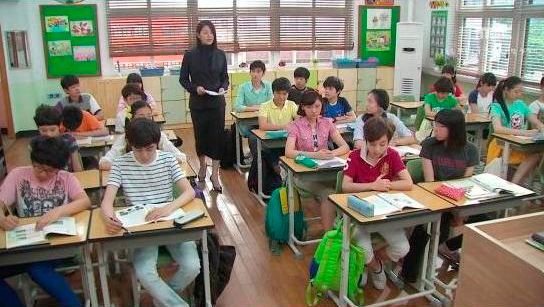
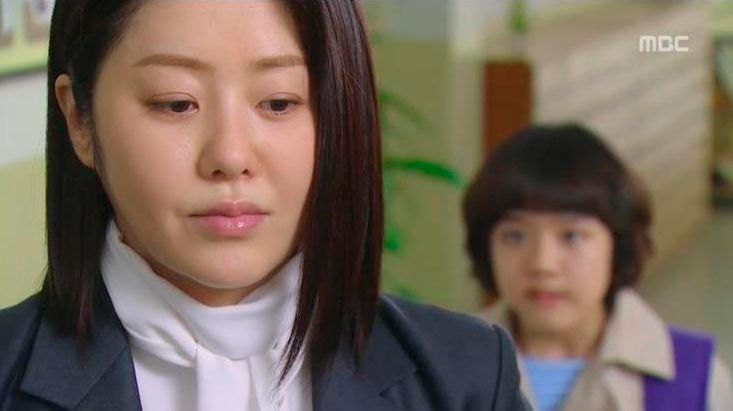
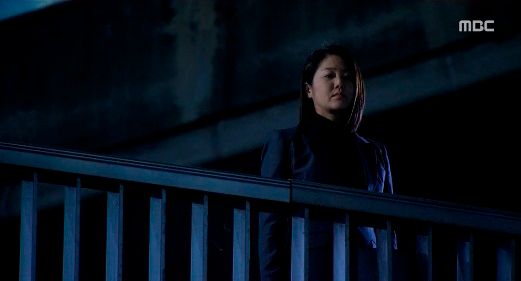
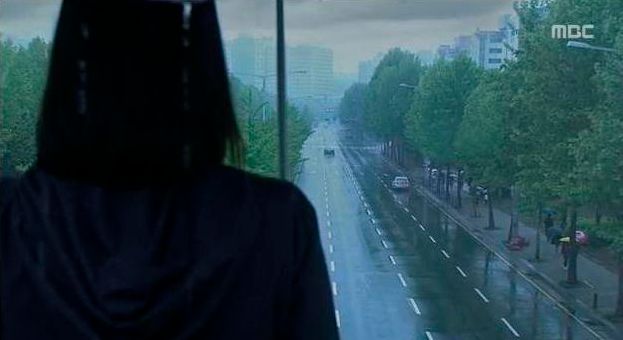
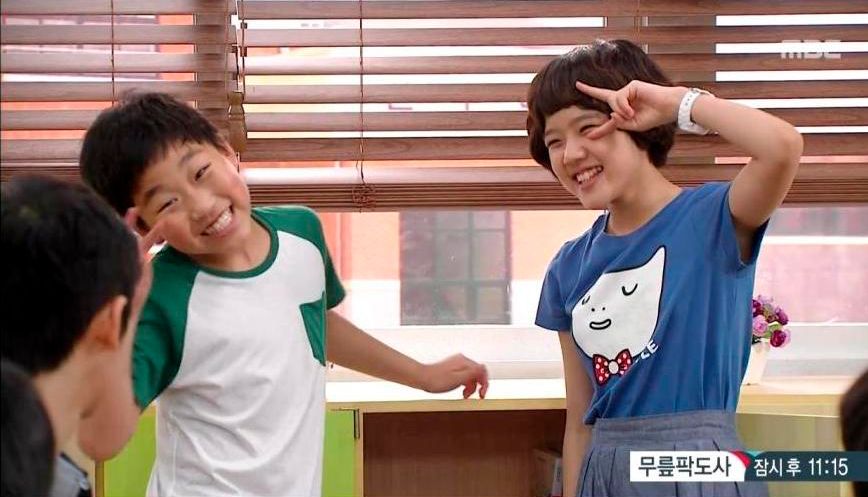
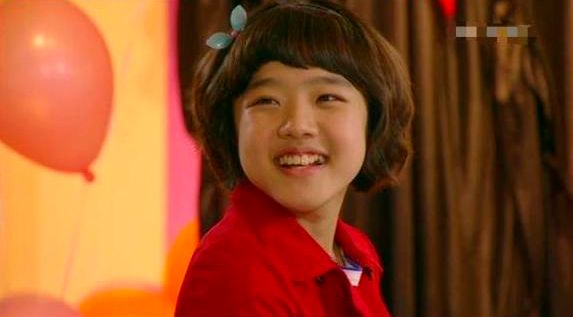
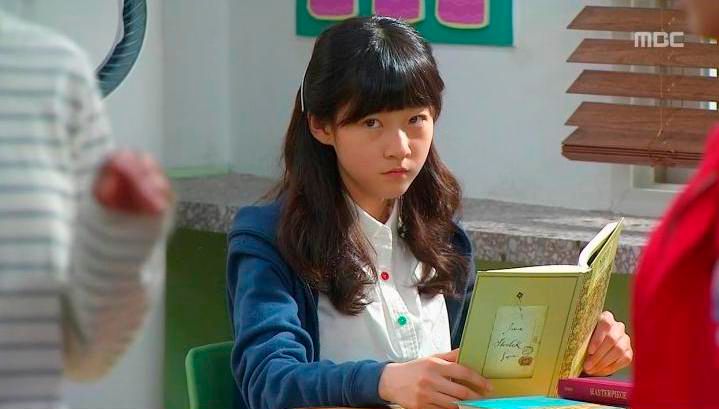
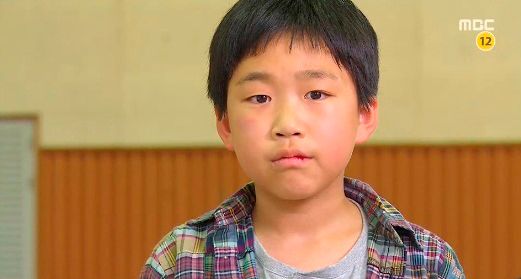
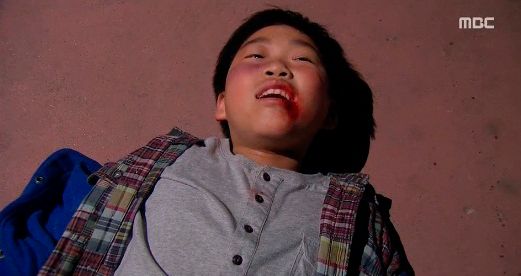
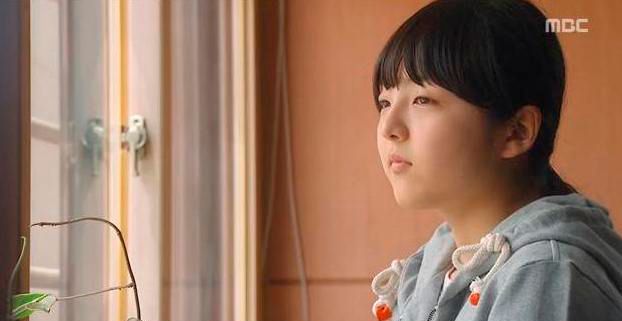
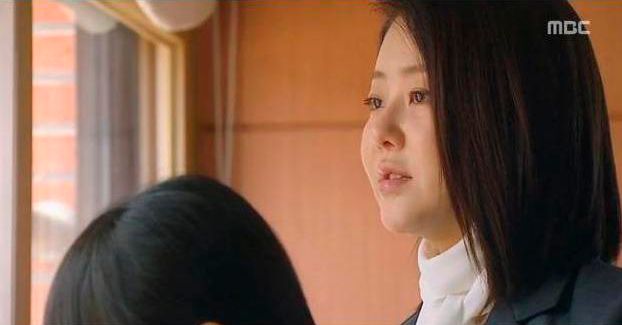
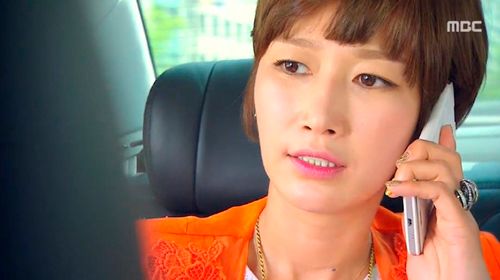
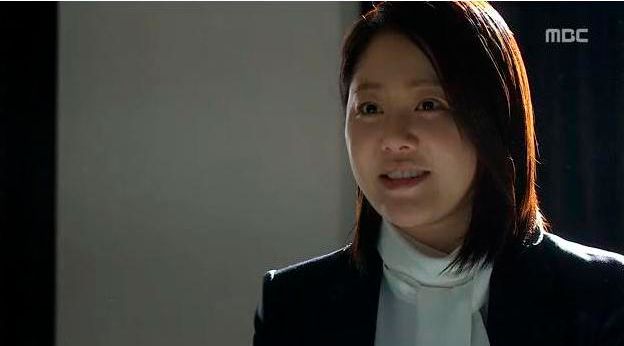
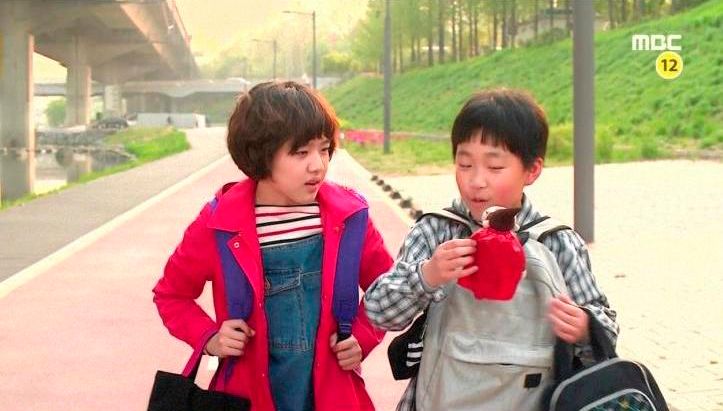
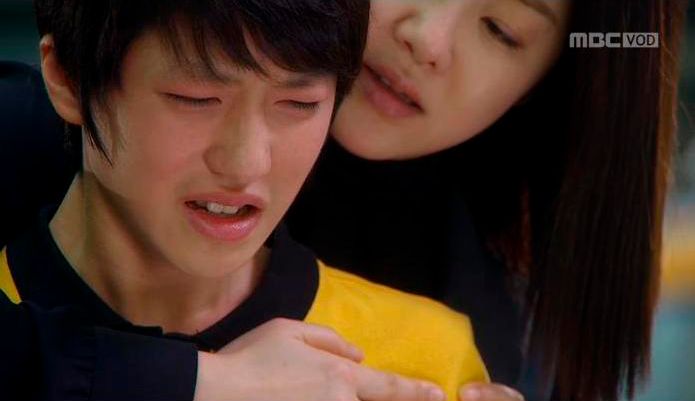
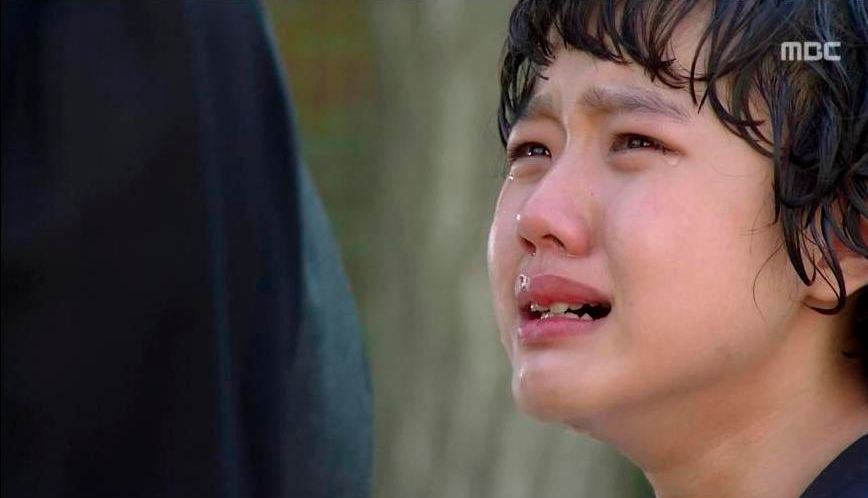
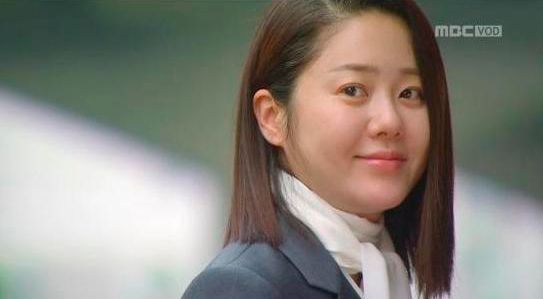
 Interview with Kim Yoo-jung
Interview with Kim Yoo-jung Hello Dramabeans series
Hello Dramabeans series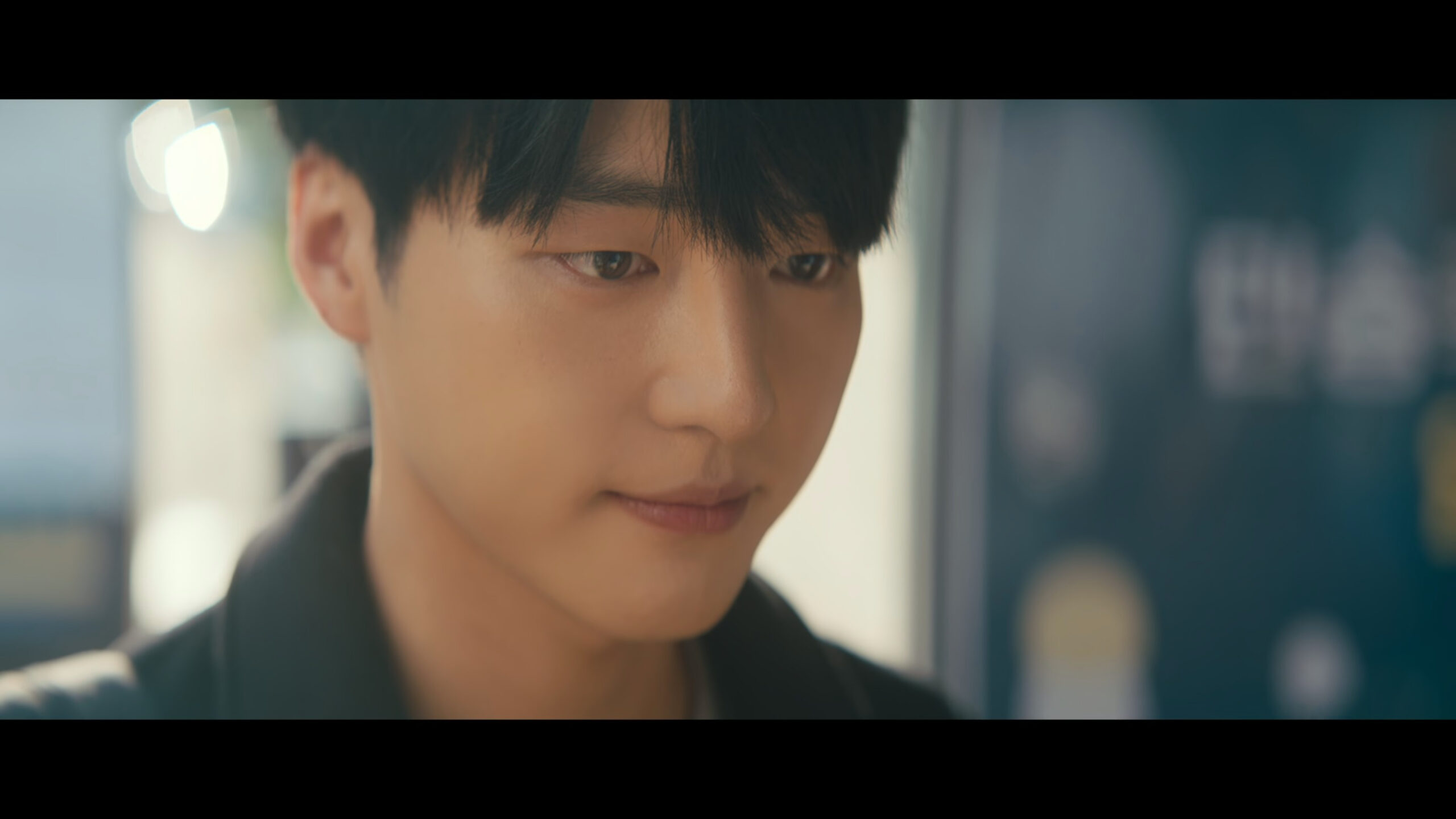
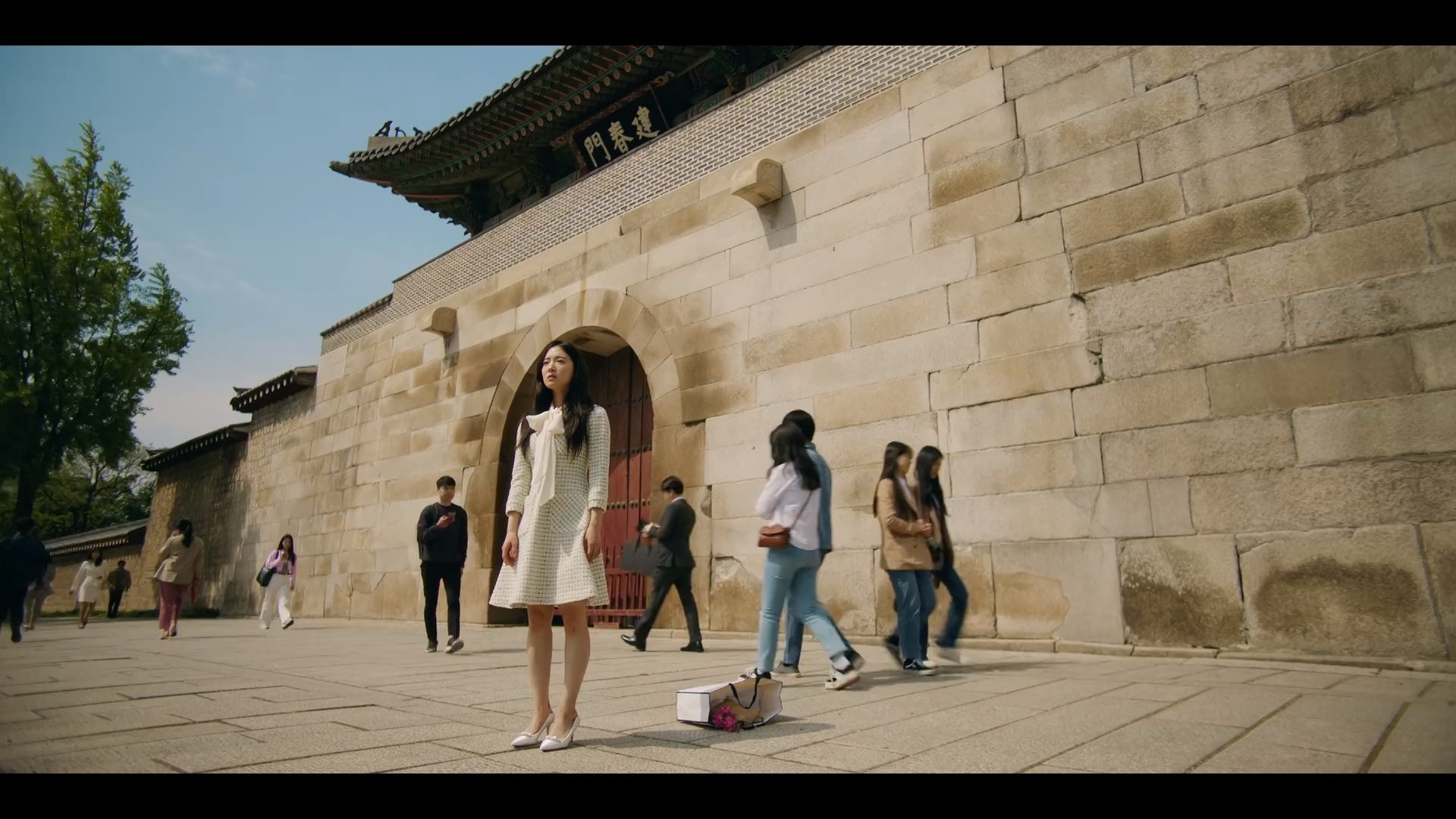


![[2022 Year in Review] The Bean Count](https://www.dramabeans.com/wp-content/uploads/2022/11/beancount_2022.png)

Required fields are marked *
Your email address will not be published. Required fields are marked *
51 Dam
October 21, 2013 at 6:57 PM
Omg you wizard, you made me tear up..
im so watching this drama T-T
Required fields are marked *
52 Rose T
October 21, 2013 at 10:28 PM
I cried buckets over this drama. It was so good and so emotionally moving. Even if you do not agree with Teacher Ma's methods, you could not argue that those children were able to understand and learn from them.
There is an old adage, that "sometimes you have to be cruel to be kind". It's just that Teacher Ma's being "cruel" has taken it to another level.
Loved the kids' acting. They all shone in this series.
Required fields are marked *
53 all4movies
October 22, 2013 at 11:00 AM
This was definitely an hidden gem of 2013. I love your recaps. You always bring such insight to dramas. I found that each episode always presented a lot of thought provoking ideas.
The child cast was amazing and GHJ brought the perfect touch of fear and suspense to this drama. Yes, she was extreme in her methods, but it came from a place of love for her students and her desire to unlock their independence.
Kind of like an elementary boot camp.
Madame Go was one of the most interesting and provocative adopted parent I have seen in kdrama, as it is unusual to see parental types outside of the typical male/female gender roles in Korea.
A thought provoking and eye opening drama for sure.
Required fields are marked *
Aswathy
October 25, 2013 at 1:14 PM
Yes, I too agree with and at the end of 16hours, I have not wasted a minute, every thing was worth it.
Required fields are marked *
54 Aswathy
October 25, 2013 at 1:12 PM
True, I cannot believe just how good this drama is. One minute you are happy and realize, this is the best way and then you end up being totally wrong. Oh, you are crying now. I cried out loud so much while watching the show. I am only 23 now and I know I have much of my life to live, but at times you are so stuck in this really hard and competitive world that you need inspiration.
This drama as that inspiration for you. I will strongly recommend everyone to watch it. There is no romance, as mentioned in the review, but that is what makes the points get clearer, you are not lost in the fanciness of the world. You understand friendship, love, failures, success and how different we are as kids and how lose it when we grow up.
Also, thanks to SHINee, RyeoWook and Sunny for the songs. They just add additional emotion. This will surely be in my drama collection.
Required fields are marked *
55 beca
November 2, 2013 at 10:04 PM
i watched this drama while it's airing... and i loves kids that's why i love this drama... Teacher Ma was so stern but a kind-hearted teacher.. i wish i had a teacher like her or my future kids will have a teacher like...
Required fields are marked *
56 Nieya Asni
December 8, 2013 at 10:20 PM
I like the Japanese version more because Amami Yuki played her role well and also not too much drama...
Required fields are marked *
57 lesle
August 23, 2016 at 10:28 AM
@HeadsNo2- Just read your 'Series Review' here. Repeating a comment I made (Jun 25 2013 9:27 am) in http://asianwiki.com/The_Queen's_Classroom_-_Korean_Drama
---
Watching episode 1 for the second time I noticed something that whizzed by me the first time:
Ha na's pencils are broken, but in such a way that it's not apparent they are broken until she tries to use them to take the test. Likewise, it's not obvious that the lead in the mechanical pencil is broken until she tries to write with it. Ha na inadvertently swept her pencil case off her desk onto the floor when Oh Dong-Goo (annoying boy) startled her. And we, and she, and the other students, assume the pencils were broken then.
But were they?
When the teacher enters the classroom for the first time, when all the as-yet unmet students are in the auditorium, the teacher walks the aisles of the empty classroom (Episode 1, Part 1, begin at 12:33). At one point the teacher partially picks up Ha na's pencil case (begin at 13:17)--and then the scene cuts to the auditorium. We don't see or know for sure if the teacher picked up the pencil case, or if the teacher broke Ha na's pencils.
Maybe she did, maybe she didn't, we may never know, but what other reason could there be for that scene?
And if the teacher did break the pencils, was it a random act, or did she already know it was Ha na's desk and pencil case? --- --- And does that classroom really not have a pencil sharpener?
Required fields are marked *